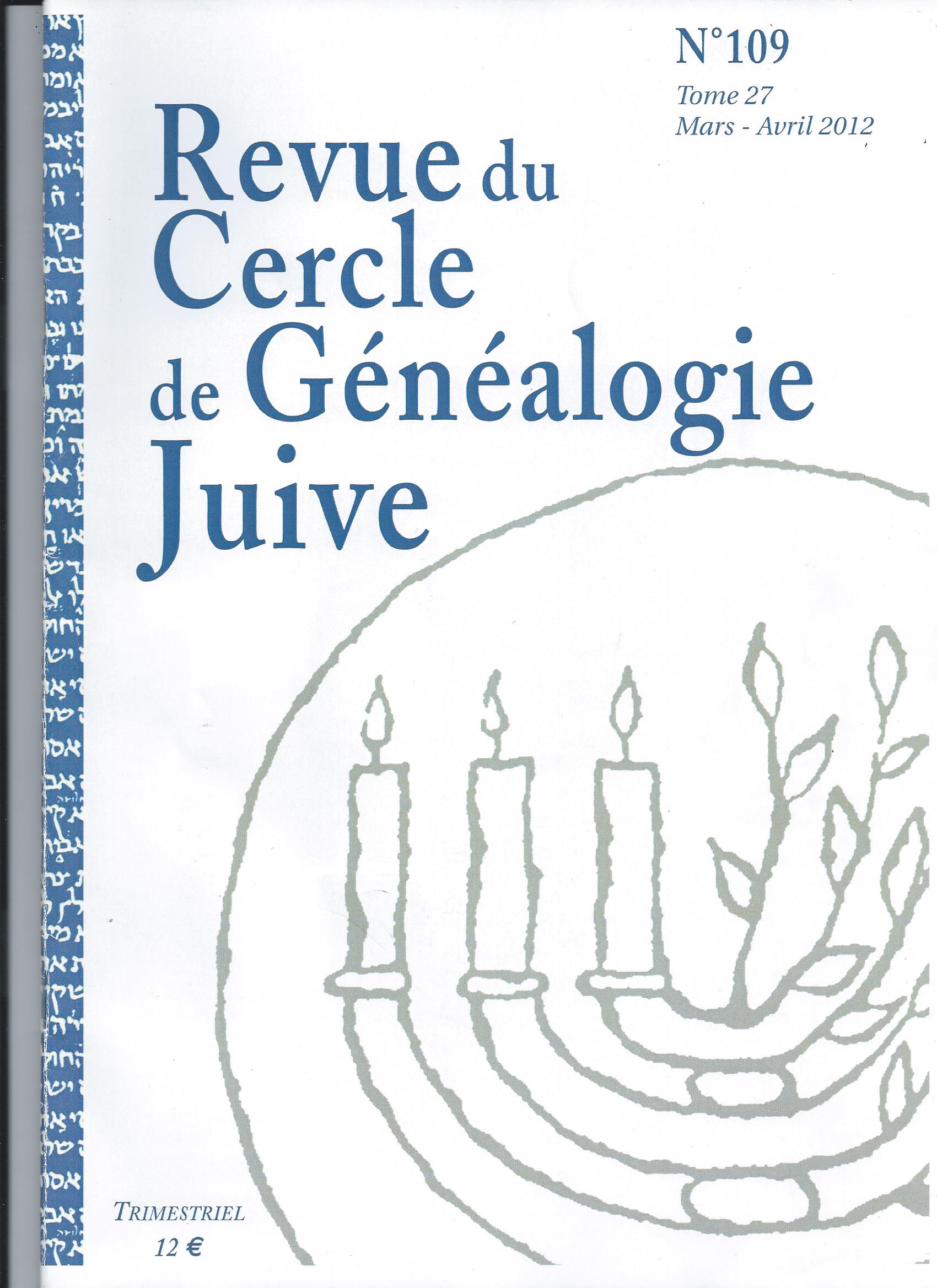Activities
Families
Haas & Cie Anne-Marie FRIBOURG. This article describes the history of a family coming from High Alsace. Two brothers born in first half of the 19th century founded a watch-making company in 1848, one in New York, the other in Paris and Geneva. The Haas & Cie society innovated by seeking always more precision and fine work to produce colorful jeweled watch designs and obtained many medals at numerous world exhibitions. The study of the descendants provides some surprises, such asseveral famous people. The Caid Nessim, main character of the Scemama or Samama Caid dynasty of Tunis Gilles BOULU. The Scemama/Samama provided to the Regency of Tunis a great number of personalities for the key fields of Tunisian society, more precisely in the country’s financial administration and management of the Jew community in the 19th century. The author, who is connected to this dynasty, makes the biographical portrait of one of his most renowned relative, Caid Nessim Scemama (1805-1873), a controversial character who became famous for his actions during the financial crisis of Tunis. Gilles Boulu also presents his ascendency and the genealogy ofhis heirs.
The Hajwentreger and Brzostek from Powązki, outskirts of Varsovie
From a not well known census to genealogical results still uncertain Daniel VANGHELUWE and Louisette FLACHER The authors rewiew the different sources referenced for Powązki in the outskirts of Warsaw: cemetery, census and vital records of the neighboring village, Kaskada. They analyze the documents received, develop hypotheses about the relationship ofHajwentreger and Brzostek families. They suggest other ways to explore.
The judéo-comtadin : an extinct language ? Michel ALESSIO Four communities in Avignon and Comtat Venaissin once formed a Judaic island in pre- Revolutionary France. Zosa Szajkowski suggests that they also formed a linguistic island in his book "The language of the Jews in the four Communities of Comtat Venaissin". In searching for a lost Judaic language, he only finds general Provençal with scattered loanwords from Hebrew. A Judaic language is always a language brought from somewhere else, which was not the case in a country where Jews lived without interruption since classical
times.
Library
List of recently received documents and books
Press and Books review
Questions and Answers
| 
